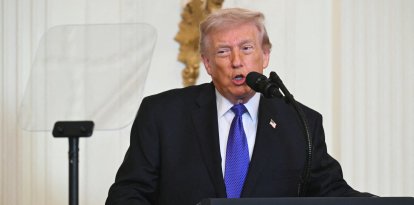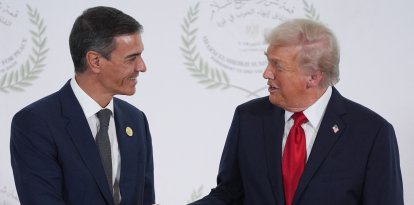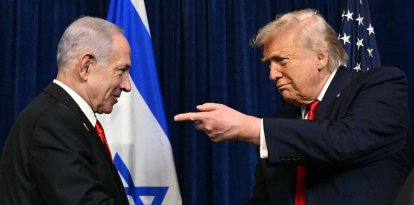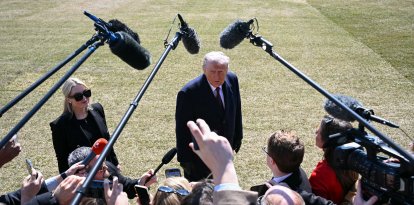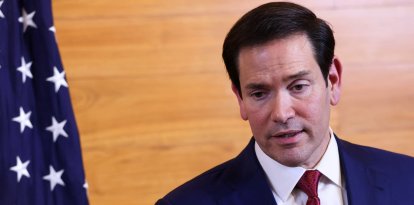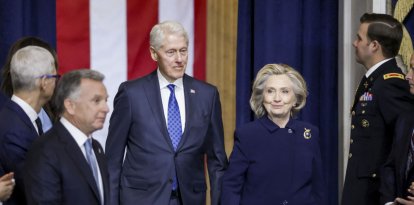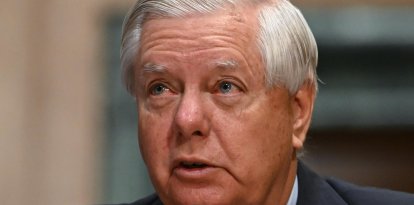Behind the scenes of the 'One Big, Beautiful Bill': How Trump got his mega bill passed
Before the act in the White House, they had to spend almost seven months during which disagreements among Republican lawmakers prevailed.

Johnson and Trump at the White House/ Brendan Smialowski.
While Republicans hold majorities in both houses of Congress, passing Donald Trump's first bill was no easy task. It took nearly seven months in which internal bickering among GOP lawmakers took precedence. Two recent articles in The Wall Street Journal and Politico shed light on certain details about how it came to be that the president enacted the "One Big, Beautiful Bill."
In addition, the process took down Tom Tillis (R-NC), who confirmed he would not seek re-election after announcing his no vote. A similar fate could be in store for Congressman Thomas Massie (R-KY), whom the president has his eyes on for in the midterm elections.
The bill initially passed the House and was sent to the Senate, where it underwent several modifications. This led to its return to the House being quite rough, with up to 20 Republican congressmen expressing doubts.

Politics
Complete guide to the 'One Big, Beautiful Bill': What's included in Trump's mega-bill
Joaquín Núñez

Negotiations began between the White House and this group, which gradually became smaller as the days passed. Among them were Ralph Norman, Chip Roy and Lloyd Smucker, among others.
Both articles cite Trump's pressure on the party as a major cause of party discipline, although they also note the emergence of a key figure in the negotiations: Russell Vought.
The chamber's fiscal hawks highly respect the director of the Office of Management and Budget (OMB), so he was instrumental in calming the waters in the final moments. " Vought came to the Capitol to discuss spending issues with members directly," the WSJ stressed, remarking that his task was to "discuss spending issues with members."
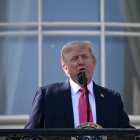

Just The News
Ratcliffe CIA review on Russia and 2016 a ‘whitewash’ & ‘protects deep state,’ GOP intel chair says
Just The News/Jerry Dunleavy
"Between the White House meetings, visits from Budget Director Russ Vought and other key White House officials, and Trump calling into the Republican cloakroom overnight, they muscled the hard-liners to," Politico added. This group of Republicans expects the OMB director's fiscal assurances to be reflected in the coming months.
Vought was, of course, joined by Mike Johnson, who finally managed to unite the wills of fiscal hawks and moderate blue-state Republicans.
In the Senate, the key player was Thune himself, who had to convince an undecided Lisa Murkowski (R-AK), who even continued to criticize the bill even after voting for it. The Alaska senator secured several concessions for her state before preventing the bill from stalling in the Senate.
In addition to the negotiating skills of Johnson and Thune, Trump picked up the phone in the home stretch and even talked to Massie, whom he had been publicly attacking. In unison, he exchanged encouragement with some tougher messages on Truth Social.
Another senator who had to be won over was Ron Johnson (R-WI), who had previously been very tough on the president's first legislation. Gradually, as the vote date approached, the Wisconsin Republican moderated his tone, ultimately voting with the majority.
"Trump's vague promises and flattery paid off when the House passed the legislation Thursday afternoon, highlighting his iron grip on the GOP. Only two House Republicans and three Republican senators voted against it. It was the latest example of how threats of Republican dissent faded since Trump's popularity within the party," the WSJ noted.













